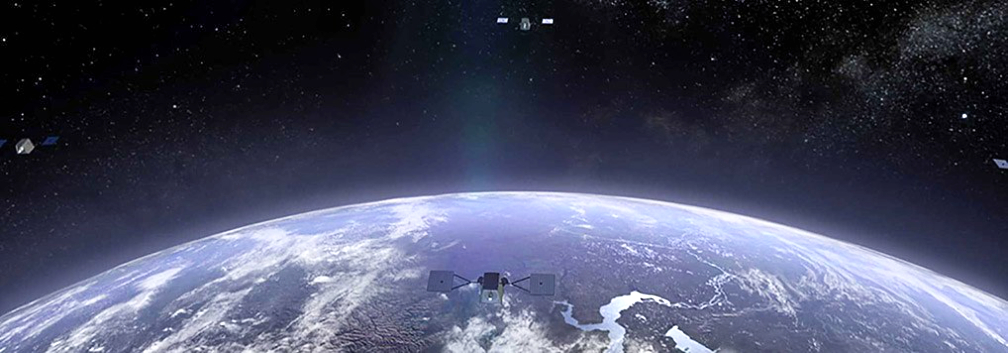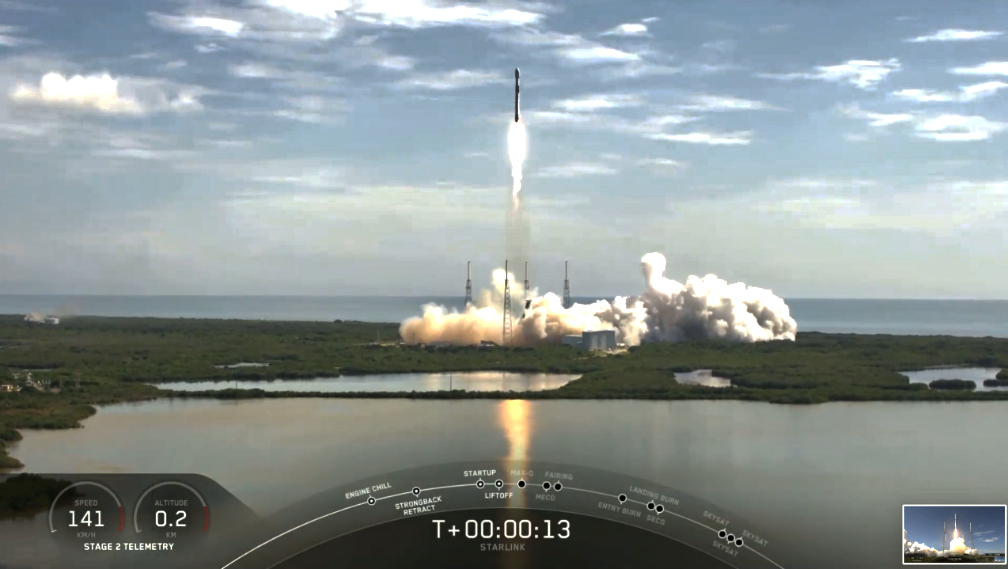
OneWeb, currently proceeding slowly through its Chapter 11 bankruptcy reorganization, is asking the US government to relax its rules on importing satellite components and materials under its Foreign Trade Zone regulations.
The Foreign Trade Zone (FTZ) rules permit businesses to lower import duties and easier customs processes.
OneWeb has made its application via its joint-venture (OneWeb Satellites North America LLC) with Airbus, which is based in Merritt Island, Brevard County, Florida, and turns out OneWeb’s satellites.
The US Dept. of Commerce announced the application on the government’s Federal Register on August 19th.
“Airbus OneWeb already has authority to produce satellites for commercial, private, and military applications within FTZ 136. The current request would add foreign status materials/ components to the scope of authority. Production under FTZ procedures could exempt Airbus OneWeb from customs duty payments on the foreign- status materials/components used in export production. On its domestic sales, for the foreign-status materials/ components, Airbus OneWeb would be able to choose the duty rates during customs entry procedures that apply to its already authorized finished products (duty- free). Airbus OneWeb would be able to avoid duty on foreign-status components which become scrap/waste. Customs duties also could possibly be deferred or reduced on foreign-status production equipment,” explained the Department of Commerce.
Public comment is invited from interested parties. Submissions should be addressed to the Board’s Executive Secretary and sent to: ftz@trade.gov. The closing period for their receipt is September 28, 2020
 Also of note — SpaceX has generated some $1.9 billion of fresh funding during August, and according to reports, is still looking to raise more cash. The initial target was to raise $2.066 billion.
Also of note — SpaceX has generated some $1.9 billion of fresh funding during August, and according to reports, is still looking to raise more cash. The initial target was to raise $2.066 billion.
The cash-raising exercise follows on from SpaceX raising $346 million in May.
The news comes as Musk achieves 4th position as the world’s richest person and helped by the rocketing value of Tesla shares. Musk is now worth $85 billion, according to Bloomberg’s Billionaires Index, behind Jeff Bezos, Bill Gates and Mark Zuckerberg, in that order.
The injection of new money has been helped by solid performances from SpaceX and its delivery and return of astronauts from the International Space Station (the first-ever by a private business) and the now extremely regular launches of SpaceX’s Starlink satellites. SpaceX has launched 653 Starlink craft, although it is know that there have been some orbital failures.
The latest Starlink launch occurred on August 18th. SpaceX has launched 14 times this year, with 9 of those efforts carrying its own Starlink satellites. That launch cadence is good; however, the company’s efforts were better in 2018 when there were 20 launches of its Falcon 9 and one Falcon Heavy.
SpaceX, in an SEC regulatory filing, said the cash was raised on August 4th and 75 investors participated. The response now values SpaceX at some $46 billion. The investors will receive shares in SpaceX.
The cash will be used for general purposes and capital intensive projects at SpaceX which likely includes more rockets, more Starlink satellites and more investment on Musk’s giant Starship spaceship.
The firm’s Starship project is coming along nicely. A test ‘flight’ (SN5) on August 4th managed a journey of some 175 meters altitude, but there’s some way to go before Musk’s longer-term ambition bears fruit, which is to take 100 people to Mars and back.
News stories authored by journalist Chris Forrester,
who posts for the Advanced Television infosite
and is a Senior Contributor for Satnews Publishers.
